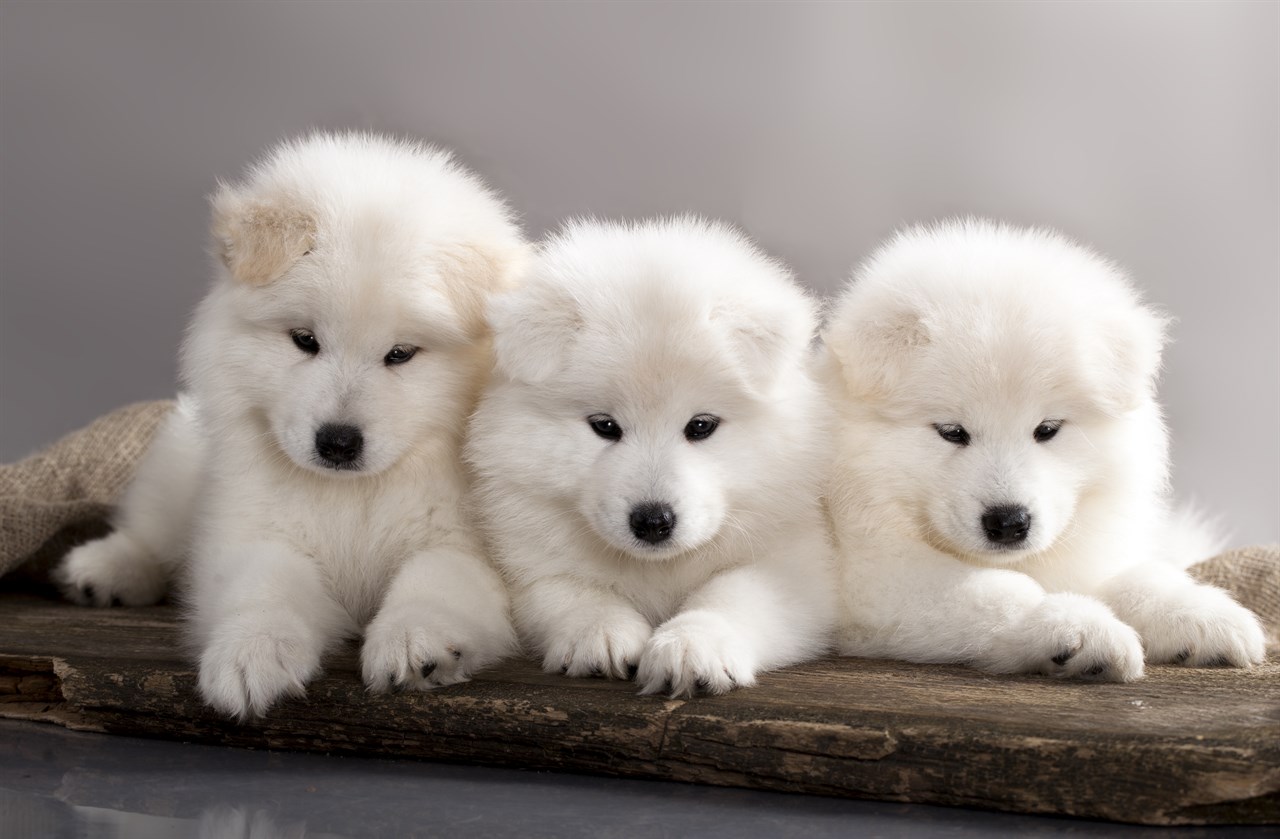Sleeping Requirements and Sleeping Habits of Samoyeds

Samoyeds, like all dogs, have specific sleeping requirements and habits that are influenced by their age, activity level, and individual preferences. Understanding these needs and behaviours can help ensure your Samoyed gets the rest they require for optimal health and well-being.
Sleeping Requirements
- Age-Dependant: The amount of sleep a Samoyed needs can vary greatly with age. Puppies and young dogs tend to sleep more than adult dogs, with puppies needing as much as 18 to 20 hours of sleep per day. As they mature, this gradually decreases to around 12 to 14 hours for adult Samoyeds.
- Activity Level: A Samoyed's activity level can significantly impact their sleep requirements. More active dogs may need more rest to recover, while less active dogs may require less sleep.
- Health and Comfort: Health issues, discomfort, or pain can affect a Samoyed's sleep patterns. If you notice changes in their sleep habits, consult with your veterinarian to rule out any underlying health problems.
Sleeping Habits
Samoyeds are known for their love of comfort, and they often seek out cosy spots for sleep. Here are some common sleeping habits of Samoyeds:
- Curling Up: Many Samoyeds enjoy curling up in a ball when they sleep. This position helps them conserve body heat and is reminiscent of their natural behaviour in cold climates.
- Variety of Sleeping Spots: Samoyeds may choose various sleeping spots throughout your home. They might sleep on a soft bed, the couch, or even the floor, depending on their comfort level and the temperature of the room.
- Light Sleepers: Samoyeds are often light sleepers and can wake up quickly to respond to sounds or movements in their environment. This alertness is a characteristic that has been preserved from their history as working dogs.
- Napping: Like all dogs, Samoyeds enjoy daytime naps, especially after periods of play or exercise. These naps help them recharge and rejuvenate.
- Social Sleepers: Samoyeds are social animals and may prefer to sleep in the same room as their human family members. They often enjoy the company and comfort of being close to their loved ones.
Creating a Comfortable Sleep Environment
To ensure your Samoyed gets quality sleep, consider the following:
- Comfortable Bed: Provide a comfortable and appropriately sized bed for your Samoyed. Many dogs appreciate orthopaedic or memory foam beds, especially as they age.
- Quiet Environment: Ensure the sleep area is quiet and free from disturbances, especially during nighttime rest.
- Routine: Establish a consistent sleep routine to help your Samoyed understand when it's time to sleep and when it's time to be active.
- Temperature: Maintain a comfortable room temperature, as Samoyeds are sensitive to heat. They may prefer cooler sleeping environments.
- Regular Exercise: Regular exercise and mental stimulation during waking hours can help your Samoyed sleep better at night.
- Health Check: If your Samoyed's sleep patterns change significantly or if they appear restless during sleep, consult with your veterinarian to rule out any underlying health issues.
In conclusion, Samoyeds, like all dogs, have specific sleeping requirements and habits that depend on their age, activity level, and overall well-being. Providing a comfortable and safe sleep environment, along with regular exercise and attention to their health, will ensure your Samoyed gets the rest they need for a happy and healthy life.